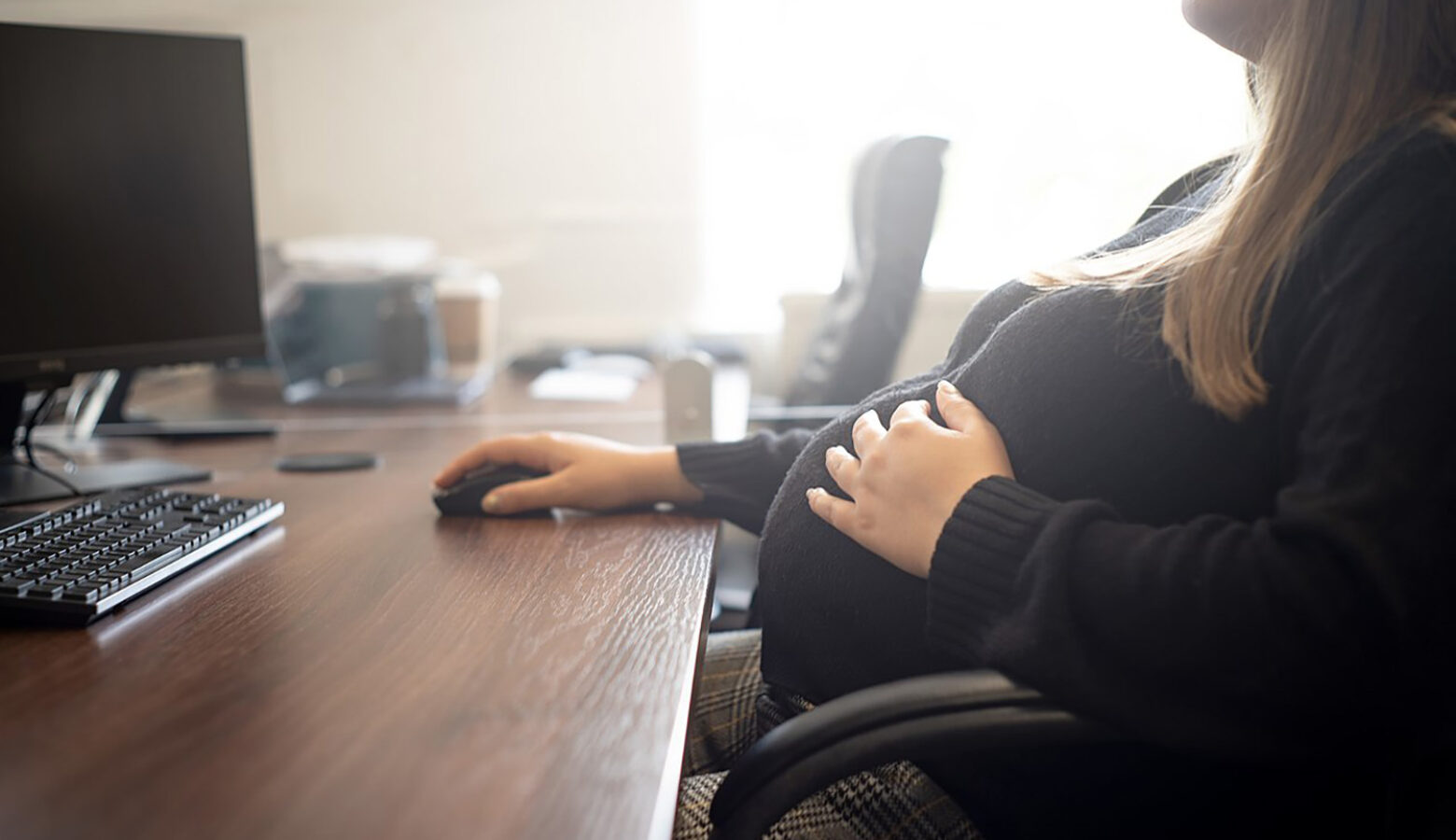Indiana’s pregnant workers have few protections in state law. Federal law could fill the gaps

Pregnant workers often need support – or “accommodations” – to do their jobs effectively without risking their health. A new federal law requires employers to provide those accommodations, like it long has for disabilities.
For years, advocates tried to enshrine protections for pregnant workers in Indiana law. In 2021, they got some protection with a law prohibiting employer retaliation against pregnant employees who request accommodations like additional bathroom breaks, the ability to use pregnancy wear or access to a place to sit down.
Nearly one in four mothers in a February 2022 survey by the Bipartisan Policy Center and Morning Consult said they have considered leaving a job because of a “lack of reasonable accommodations or fear of discrimination.”
Erin Macey directs the Indiana Community Action Poverty Institute. The state law doesn’t require the employer to make any accommodations, she said.
The new federal law, the Pregnant Workers Fairness Act (PFWA), began requiring employers to provide pregnancy accommodations in June, if the request is “reasonable.” Macy said the PFWA can empower pregnant workers to ask for support and makes sure employers “know that they must provide those accommodations.”
Federal law already prohibited pregnancy discrimination, but until recently it never fully guaranteed accommodations unless the pregnancy resulted in a disability.
Workplace supports can help protect the health of workers and any potential future children, Macey said.
“We do not have paid family and medical leave. So that is not an option for pregnant individuals who may be experiencing a situation that requires time off or accommodation,” she said. “We also have a really high infant and maternal mortality rate. And so if we’re talking about ‘how do we support the health of moms and babies?’’ this is one step in that direction.”
Indiana had the nation’s third highest rate of pregnancy-related deaths last year and the ninth highest rate of infant deaths in 2020, according to the Centers for Disease Control and Prevention.
READ MORE: Child care system is ‘severely broken,’ advocates tell Indiana lawmakers
Join the conversation and sign up for the Indiana Two-Way. Text “Indiana” to 73224. Your comments and questions in response to our weekly text help us find the answers you need on statewide issues.
Along with preventing health risks from job-related activity, the PFWA’s accommodation requirements could also help ensure pregnant workers have job security and the health benefits that come with that, Macey said.
Macey has interviewed several pregnant Indiana workers as part of the “Ask The Women” research project at Indiana University. She recalled the story of one woman who struggled because of “severe morning sickness.”
“I don’t know enough about her employment situation to know whether or not it would have been reasonable for her to continue working,” Macey said. “But because she was placed on unpaid leave and then when that ran out, [she] lost her job, she lost her employer-provided health insurance.”
The woman lost her housing and had her car repossessed after that, Macey said.
“It can just be really damaging. So the ability to continue working while you’re pregnant is really, really important to a lot of individuals,” she said. “ And so having those accommodations is really essential. So they don’t put themselves in a position that’s not healthy and not safe.”
Indiana’s 2021 state law also didn’t allow pregnant workers to sue employers who didn’t follow the law, instead limiting them to Indiana’s Civil Rights Commission. Critics have argued the commission’s structure “unfairly biases state civil rights proceedings against” individuals filing a discrimination charge.
The new federal law however does allow pregnant workers to sue for their rights. This is the primary method for enforcing the law against employers who discriminate or refuse to provide reasonable accommodations. The enforcement model for the PFWA is similar to the Americans with Disabilities Act.
Setting up standards for that enforcement is partly up to the federal Equal Employment Opportunity Commission (EEOC) The PFWA charged the commission with creating more specific rules to guide enforcement of the law’s broader language. That is often the case with many laws.
The EEOC put out a proposed rule last week. The public has until Oct. 10, 2023 to comment on it.
Sharyn Tejani is an associate legal counsels in the EOCC’s Office of Legal Counsel, which is partly responsible for rulemaking.
“Although we don’t have hard data about this, there are anecdotal stories about workers who were pregnant and didn’t get accommodations and continued working and had negative health outcomes,” Tejani said. “And so hopefully those will not happen anymore because these workers will be able to get the accommodations that they need.”
CORRECTION: A previous version of this story said Erin Macey called Indiana’s pregnant worker law a win. That was incorrect. That language has been removed.
Adam is our labor and employment reporter. Contact him at arayes@wvpe.org or follow him on Twitter at @arayesIPB. Abigail is our health reporter. Contact them at aruhman@wboi.org.

